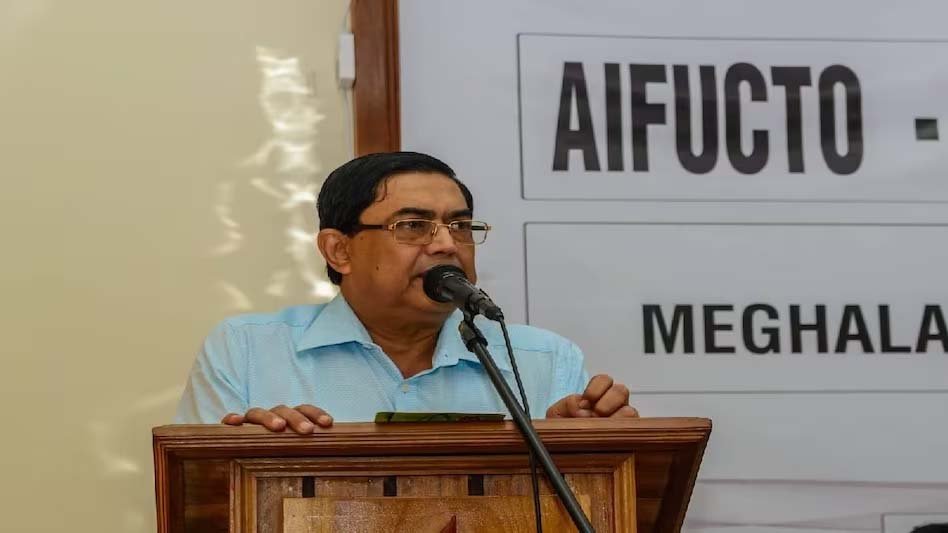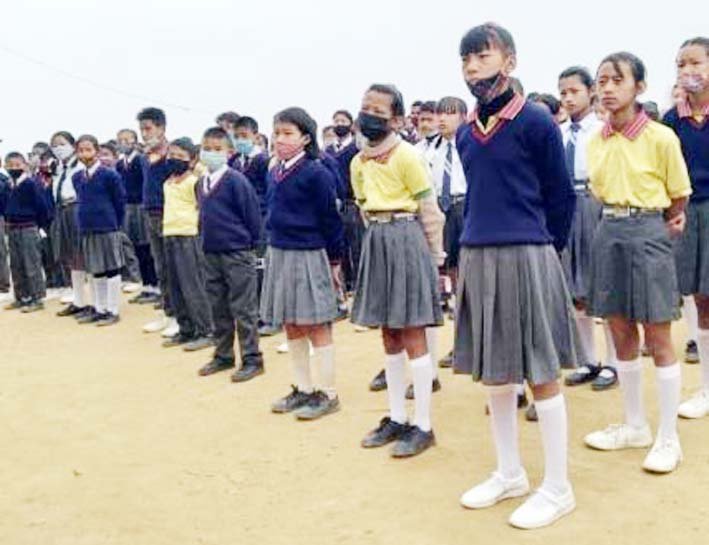HT Correspondent
DIMAPUR, June 9: Raising concern over the National Education Policy (NEP) 2020, the president of All India Federation of University and College Teachers Organisations (AIFUCTO), Prof. Kesab Bhattacharya called it “deeply flawed”.
According to him, the most important immediate impact of implementation of the NEP will lead to closing down of government schools and sharp increase in dropouts in higher education from poor SC/ST backgrounds.
Bhattacharya was addressing a national seminar ‘NEP 2020: Envisioning Quality Higher Education’ at Kohima Science College, Jotsoma on Friday. The seminar was organised by the AIFUCTO and All Nagaland Government College Teachers’ Association, in collaboration with the Kohima Science College Teachers’ Association.
He said the NEP proposed three Cs – centralisation, commercialisation and communalisation – in spite of the demands of almost all democratic organisations that the education system should be a combination of three Es – equity, excellence and education for all. “This is the major reason why the AIFUCTO is opposing the NEP 2020,” he said.
“The new education policy is well drafted and lucid, but when it is read between the lines this policy will prove to be a dangerous one,” Bhattacharya said.
He said the NEP aims to achieve gross enrolment of almost 50% by 2035 for which huge financial expenditure is required. He added that the government proposed that the expansion of education will be through PPP (public-private partnership) model but replaced private with philanthropy.
He questioned whether philanthropic organisations without considering their profit will invest money for expansion of education in the country.
Bhattacharya also questioned whether the government truly wants to achieve scientific temper when Darwin’s Theory of Evolution and Mendeleev Periodic Table are being removed from the syllabus.
He also claimed that in the NEP 2020 document, nothing is mentioned about gender equilibrium in education or women’s education.
While raising concern on the multiple entry-exit choice based credit system, he said it sounds good but it may also encourage and legalise dropouts in higher education so that only a few can reach the top.
In his keynote address, AIFUCTO general secretary Prof. Arun Kumar said the NEP came into effect on July 20, 2020, bypassing the views of the states and stakeholders.
Kumar said the AIFUCTO opposes the NEP 2020 as it is against the basic structure of the Constitution.
“The NEP 2020 is the only education policy since independence that has neither been subjected to public debate nor placed in Parliament or even scrutinised by the Departmental Parliamentary Committee on Education,” he said and added that it was approved entirely through the internal process of cabinet approval.
Kumar further alleged that the public consultation on the policy was confined only to certain ideology groups.
He said the NEP 2020 poses a great challenge to the state-funded time-tested structure and is against the federal structure of the Constitution.
Kumar stressed that there is an urgent necessity of redesigning the NEP 2020 to start as a focal point of inclusion and quality education.












